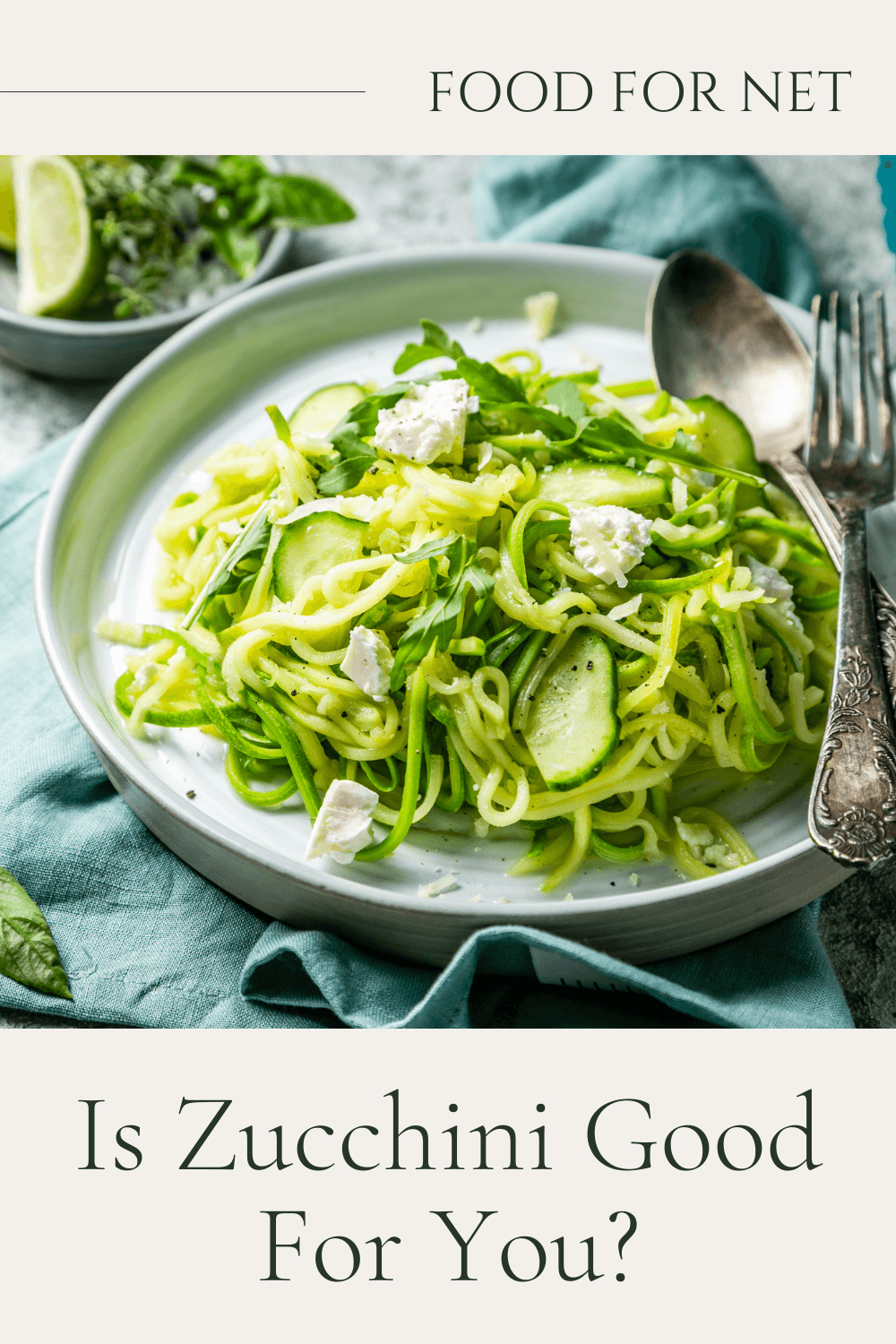
Zucchini has gone from being this boring vegetable that gardeners often have too much of, to an exciting ingredient that can be used to make zoodles (zucchini noodles) and countless other dishes. However, fad ingredients often aren’t as amazing as they seem. That’s why we need to ask, is zucchini good for you?
To do so, we need to take a close look at zucchini nutrition, along with where the vegetable shines and what its limits are. After all, every ingredient under the sun has at least a few concerning features. Zucchini is no exception to that pattern.
Is Zucchini Good For You?
- Zucchini Nutrition
- Benefits Of Zucchini
- The Problems With Zucchini
- Why Zucchinis Are So Popular For Keto
- Can You Have Too Much Zucchini?
- Final Thoughts
Zucchini Nutrition
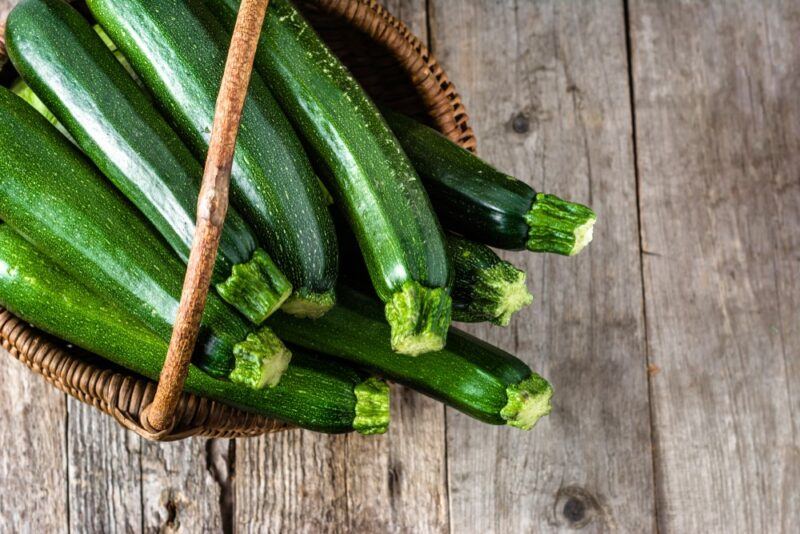
The first thing to think about is the nutrient profile of zucchini. So, for a cup of chopped zucchini (with skin), the nutrient profile looks like this:
- Calories: 19.8
- Carbohydrates: 4.2 grams
- Dietary Fiber: 1.4 grams
- Sugars: 2.1 grams
- Protein: 1.5 grams
- Fat: 0.2 grams
- Vitamin C: 35% of your daily requirements
- Vitamin B6: 14% of your daily requirements
- Manganese: 11% of your daily requirements
- Riboflavin: 10% of your daily requirements
- Potassium: 9% of your daily requirements
- Folate: 9% of your daily requirements
- Vitamin K: 7% of your daily requirements
There are smaller amounts of plenty of other nutrients too, including magnesium, calcium, iron, and zinc.
The percentages of nutrients might not look like much at first glance, but remember that we’re talking about a very low calorie vegetable. As such, zucchini is an easy way to add extra nutrients into your diet.
Benefits Of Zucchini
Low In Calories And Carbs
As the nutritional profile showed, zucchinis are naturally low in calories and carbs. In fact, for a cup of chopped zucchini, you get less than 20 calories and around 4.2 grams of carbs. The net carbs per serving end up being around 2.1 grams, which is seriously impressive.
While high calorie foods (like butter) and high carb foods (like quinoa and oatmeal) can sometimes be very good for you, many of us still need to drop down our calorie and carb intake where we can. After all, excessive calorie intake leads to weight gain, while carbs can promote inflammation and might increase disease risk.
Helps With Digestion
Zucchini is relevant to digestion in a few ways. First, it provides some fiber, including both soluble and insoluble fiber. Insoluble fiber is the type that bulks out your stools, helping them to move more easily. By doing so, insoluble fiber reduces the risk of constipation.
Soluble fiber, on the other hand, absorbs water and creates a gel-like substance in the process. This helps to keep you feeling full and slows down digestion, potentially allowing more nutrients to be extracted from your food.
Soluble fiber also acts as food for your gut bacteria, which is helpful for your digestion as well.
Then there’s the water content. Zucchinis are between 90% and 95% water, making them excellent for hydration and digestion. The water also reduces the risk of any digestive side effects from the fiber in zucchinis.
Works Well For Many Diets
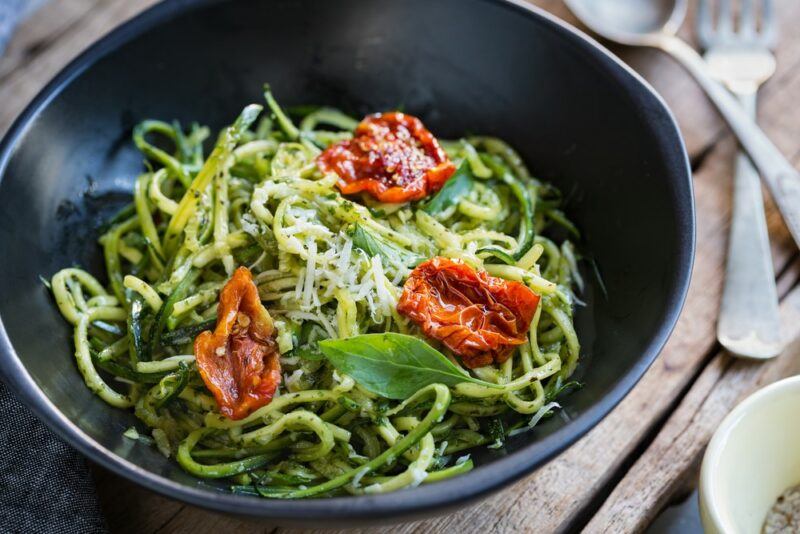
Another thing with zucchinis is that they work well for so many people. Not only are they low in carbs, but they’re also low in oxalates and can be part of a low FODMAP diet (as long as you watch your portion size).
You can also include zucchinis on paleo diets and on any weight loss diet.
Surprisingly, you can even fit zucchinis onto a low fiber diet, as a full cup of chopped zucchini only contains around 1.5 grams of fiber. There’s even less fiber if you remove the skin first. Such diets are useful after surgery or for people with some medical conditions.
Zucchinis are also versatile enough to be used instead of more problematic ingredients, like how you can make rice or noodles out of zucchini. You can take things a few steps further by creating fried zucchini rice dishes or zucchini noodle salads.
How many other vegetables are this versatile?
Can Promote Heart Health
Like most vegetables, zucchini is strongly linked to improved heart health. Much of this effect comes from the fiber content, as high fiber diets can notably decrease the risk of heart disease. Soluble fiber, in particular, can help to lower your total and LDL cholesterol levels.
There’s some potassium present in zucchinis too, which has been linked to decreased blood pressure.
Can Decrease Blood Sugar Levels
Zucchini is also highly relevant for blood sugar levels, particularly for people with diabetes. This is hardly surprising, given that zucchini is naturally low in sugar and carbs, while still offering fiber.
The fiber is particularly important, as this is what stabilizes your blood sugar. This fiber could even reduce the blood sugar impact of other ingredients (after all, you’re often eating zucchini as part of a meal, rather than on its own).
Some antioxidants in zucchini skin may have additional impacts on blood sugar levels.
This topic is still in the early stages of research and it’s not clear whether the effect occurs in humans or whether you’re getting enough of the antioxidants from zucchinis themselves (as the study used zucchini peel extract). Still, the potential is there.
May Help You To Lose Weight

Zucchinis are high in water, low in calories, and contain some fiber, so it’s hardly surprising that they help with your weight. The combination of fiber and water make zucchini more filling you might expect, which is exactly what you need when you’re trying to lose weight.
Of course, the weight loss effects of zucchini are influenced by how the zucchini is cooked and what you serve it with. Deep fried zucchini, for example, won’t do your waistline any favors at all. Similarly, serving zucchini noodles in a rich cream-based source wouldn’t be very good for you.
Has Been Linked To Other Health Benefits
Zucchini can help your health in plenty of other ways too. Many of these benefits come from the various nutrients present. After all, your body needs regular intakes of all the essential vitamins and minerals for it to function effectively.
Being deficient in any of these can lead to health problems, particularly if you’re deficient for a long time. In contrast, getting enough nutrients helps to protect you from disease and keeps your body functioning as it should.
The various antioxidants in zucchini help as well. These decrease oxidative damage throughout your body. By doing so, they may reduce the risk of some diseases, including cancer, heart disease, diabetes, and Alzheimer’s disease.
Some potential benefits include how zucchini could help with your bone health and eye health, due to the nutrients that are present, along with the antioxidants lutein and zeaxanthin.
Much more research is needed to tease out the specific ways that zucchini influences our health. Even so, it’s already very clear that zucchini is a healthy ingredient that we should be taking advantage of.
The Problems With Zucchini
They’re Not Amazing Nutritionally
Zucchinis do contain some important nutrients, including vitamin C and vitamin B6, along with some fiber. Even so, they’re hardly an impressive source of nutrients. You’ll get many more nutrients from vegetables like spinach and kale.
This isn’t a big problem if you’re getting plenty of nutrient dense foods in your diet as well. However, if you end up treating zucchini like a superfood and prioritizing it over other vegetables, your nutrient intake could suffer. This is why it’s always important to choose
Can Cause Bloating
Zucchini can sometimes lead to bloating and stomach discomfort, a side effect comes from the digestion of cellulose by your gut bacteria. Cooking the zucchini can help substantially, as doing so weakens some of the cellulose bonds, leading to decreased gas production.
The fiber in zucchini may sometimes contribute to bloating as well. This is even more likely if you have irritable bowel syndrome or a similar condition.
Drinking plenty of water can help with any fiber-related side effects. Keep an eye on your portion sizes too, especially if you’re using zucchini noodles instead of noodles. Anyone prone to bloating may need to keep their portion sizes small to avoid serious side effects from zucchini.
Risk Of Contamination
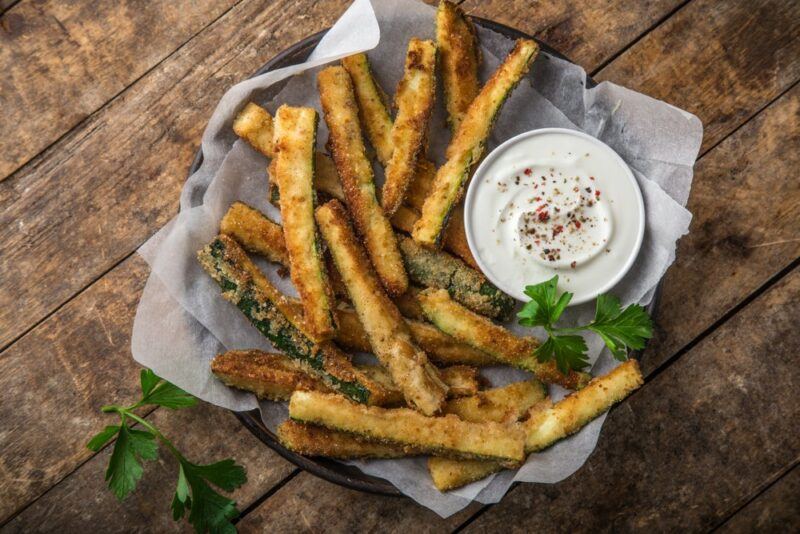
As with other vegetables, there’s always the risk of contamination from the environment, this includes the presence of parasites or bacteria. Carefully washing your zucchini before using it can help to keep you safe.
The risks are even lower if you choose to cook your zucchini, rather than eating it raw.
This isn’t something to be too worried about though – as serious contamination incidents aren’t common.
Bitter Zucchinis Can Be High In Cucurbitacins
Cucumbers contain a class of compounds called cucurbitacins. These can be dangerous, but only when they’re present in high amounts.
Thankfully, most commercial growers focus on low cucurbitacin varieties, so this issue is rarely significant. The same is true if you grow zucchinis yourself, as the seeds should be for low cucurbitacin varieties.
You need to be much more careful with wild zucchini, as these may be higher in cucurbitacins. Thankfully, the cucurbitacins present with a bitter flavor, so it’s easy to tell when there are high amounts of the compounds present.
If you do encounter bitter zucchini, it’s best to ditch it entirely, as cucurbitacin poisoning is dangerous.
Why Zucchinis Are So Popular For Keto
There’s one other important area to talk about, which is the link between zucchinis and the keto diet. The popularity of zucchinis here comes from the low carb content.
In particular, a cup of chopped zucchini contains roughly 4.2 grams of carbs. Almost 1.5 grams of that comes from fiber, which doesn’t leave many net grams of carbs per serving at all.
There are plenty of other low carb vegetables too, but what makes zucchini stand out is that you can use it to make zucchini noodles (also known as zoodles). These make excellent low carb alternatives to noodles, meaning you can still have many of your favorite noodle-based meals while following a keto diet.
That’s not all. Zucchinis are incredibly versatile, so you can use them in many different ways, including making zucchini bread, zucchini patties, and even including zucchini in some desserts.
Can You Have Too Much Zucchini?
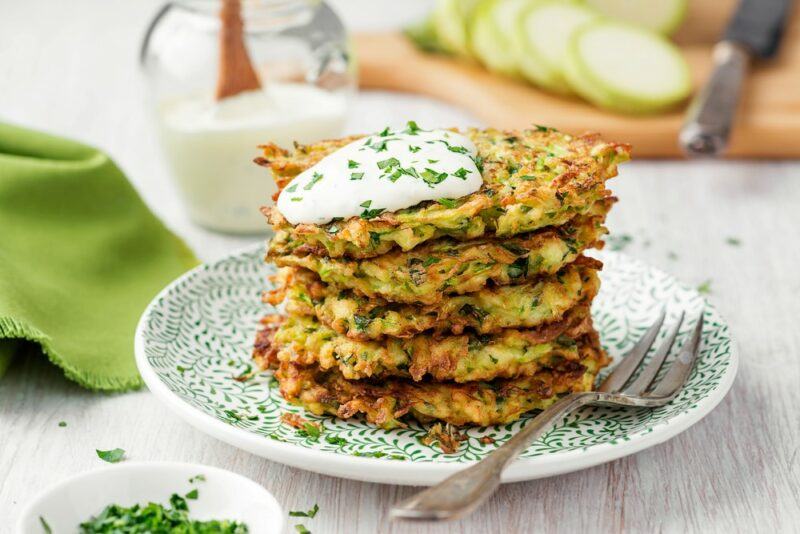
There aren’t many risks with zucchini, but it is still possible to overdo it.
The biggest problem is if you start to excessively rely on zucchinis, to the point that your intake of other foods decreases dramatically. If this happens, then your nutrient intake could suffer.
You could possibly get some side effects from the fiber too, including bloating or stomach cramps. However, zucchini contains plenty of water and not all that much fiber, so you’d probably feel full long before you ate too much zucchini.
Beyond this, there isn’t much to worry about.
That said, health recommendations generally suggest eating five servings of fruits and vegetables per day. Consuming more than this doesn’t appear to be harmful, but might not offer any extra benefits.
Final Thoughts
When it comes to nutrition and flavor, zucchinis really aren’t that exciting. What makes them stand out is the fact that they’re low in carbs and are incredibly versatile.
In fact, you get the most benefits from zucchinis when you use them instead of more problematic ingredients. For example, if you use zucchini noodles rather than pasta, the resulting dish is lower in calories and carbs than it would have been previously. Plus, zucchini noodles are gluten free, while regular noodles generally aren’t.
The trick, as always, is to think about your diet as a whole. Make wise substitutes and be sure that you’re still getting plenty of nutrients. In this context, zucchinis are a useful ingredient, but you’ll still need to focus on nutrient dense foods as well.
Frequently Asked Questions
Can You Eat Zucchini Raw?
Yes. Zucchini is completely safe and even tasty raw. It has a mild taste, so it takes on flavor from your other ingredients. This makes it useful in salads, sandwiches, and plenty of other situations.
The ability to eat zucchinis raw is why zoodles work so well. You don’t need to cook the noodles at all, just use the spiralized zucchini as a noodle replacement.
Is Zucchini A Nightshade?
The nightshade plant family includes eggplants, peppers, and potatoes, but not zucchinis. However, many people assume that zucchini, squash, and cucumbers are nightshades as well. Don’t worry though, they’re not, so zucchinis are safe to eat even if you’re avoiding nightshades.
Is Zucchini Low FODMAP?
The low FODMAP serving for zucchini is 65 grams, around ⅓ a cup of diced zucchini. Another source suggests that you can go up to ½ a cup instead, although this is still a fairly small serving size.
This serving size suggests that you can eat zoodles on a low FODMAP diet, but you’ll need to watch the amount you consume. Thankfully, there are plenty of low FODMAP zoodle recipes, where the creators have done all the calculations for you.
What’s The Glycemic Index For Zucchini?
Zucchini has a glycemic index of 15 and a glycemic load of 1 (for a cup of raw zucchini). This makes zucchini a low GI choice, one that’s perfect for diabetics.
How Long Does Zucchini Last?
If you put a whole raw zucchini in the fridge, it should last between a week or two. The exact time will be influenced by how fresh the zucchini is. You can even keep zucchinis at room temperature, although they’ll only last a few days this way.
Once the zucchini has been cut or cooked, it will last around 3 to 4 days, if stored in an airtight container in your fridge. If you need to keep the zucchini for longer, try freezing it.

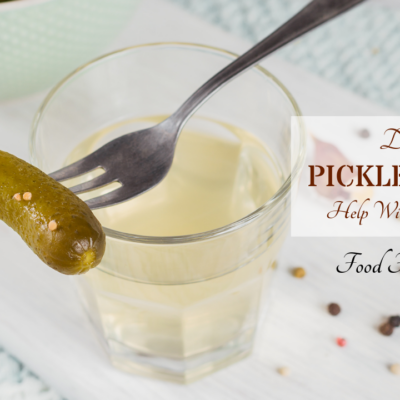

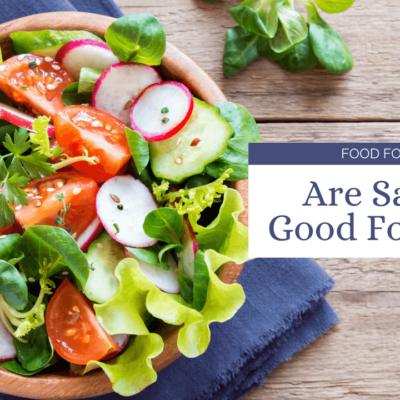


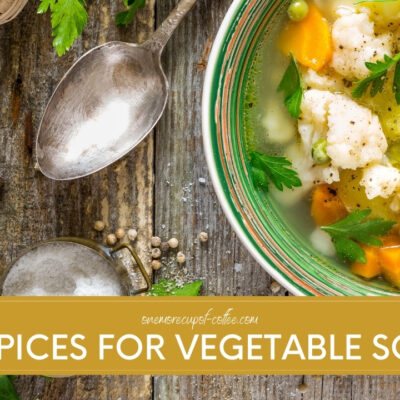


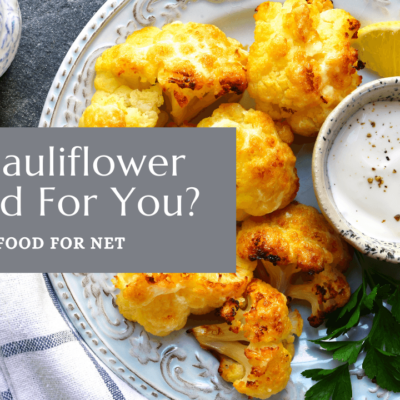
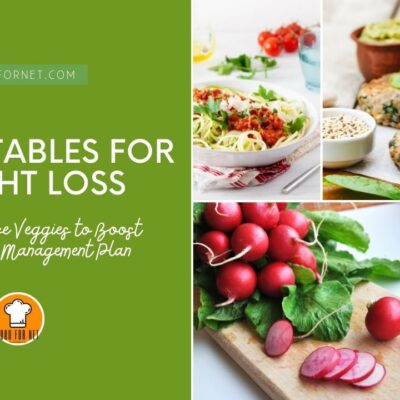
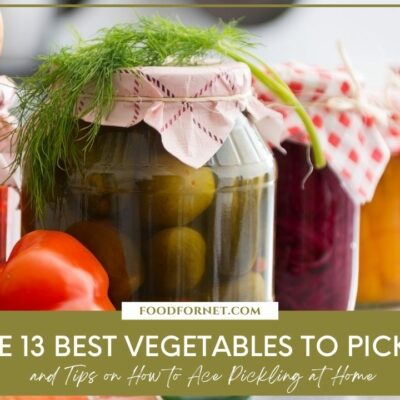
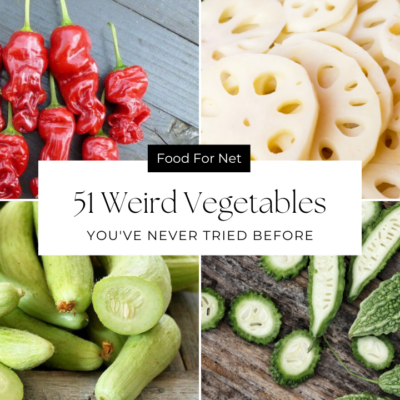
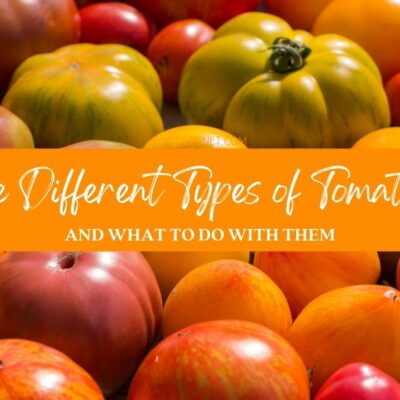
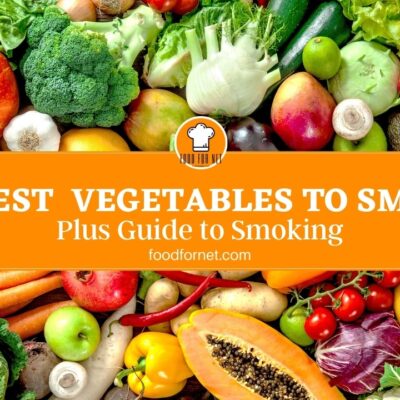
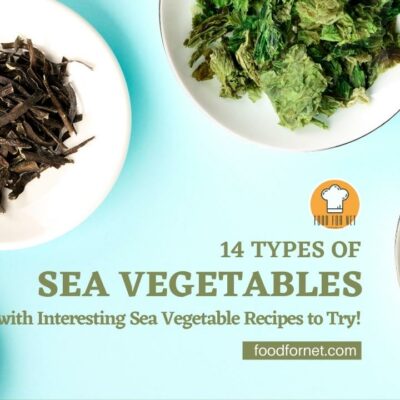
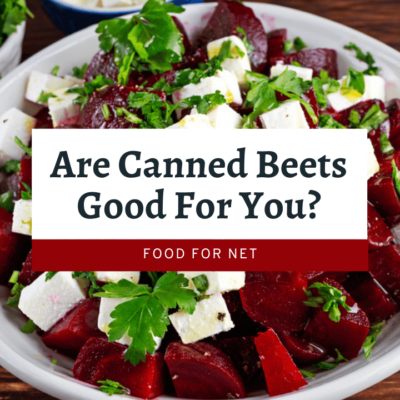
 11 Spices for Roast Turkey Plus Christmas Turkey Cooking Tips and Recipe Ideas
11 Spices for Roast Turkey Plus Christmas Turkey Cooking Tips and Recipe Ideas
Leave a Reply